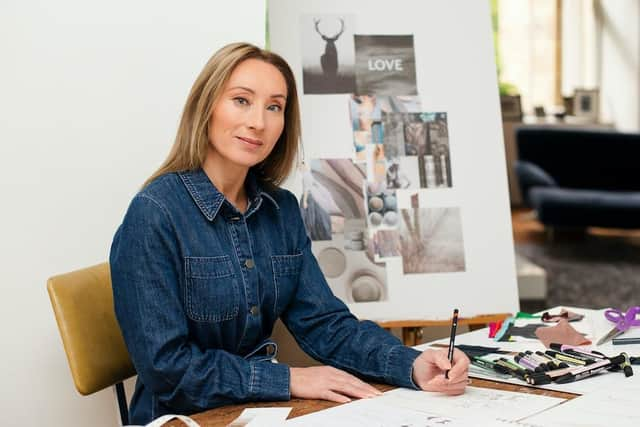Edinburgh-based LoveRose Lingerie, which is aimed at women with breast cancer, closes funding round
Edinburgh-based LoveRose Lingerie says the London-based backer, who “already operates in a retail environment” and wishes to remain anonymous, has invested £200,000 after watching founder Caroline Kennedy Alexander’s emotional appearance on the BBC One series.
The episode aired in March, and Ms Alexander later said that while the firm didn’t secure funding from the Dragons, part of a bid to raise £200,000, she was “blown away” by their reaction and “overwhelmed” with support received since the show.
Advertisement
Hide AdAdvertisement
Hide AdThe firm now states, during Breast Cancer Awareness Month, that the investor was moved to bankroll what is claimed to be the UK’s first luxury lingerie brand developed specifically for post-breast-cancer surgery after being impressed by its business ethos and following their own personal experience of breast cancer.
LoveRose says the latest capital boost will help accelerate its growth by developing brand-awareness and expanding the product line offering, which will include a new Essentials line due to launch later this year.
The company is also expanding its portfolio of business mentors and advisers to work on elevating the brand, with current advisers including Christian Maher, a former director of lingerie brand La Perla, and Yvonne Webb, a former national account manager at chocolate-maker Cadbury.
It added that work is already under way to collaborate with relevant UK charities and organisations supporting cancer patients through their recovery, with the business having also found itself popular with women who haven’t had breast cancer but who love its design, comfort and quality.


Ms Alexander said: “It’s fantastic news to have successfully closed a round of £300,000 investment – including this £200,000 commitment from our latest private investor. I am enormously excited about the potential for the LoveRose brand, which is about so much more than just bras – we put the emotional and psychological needs of our clients first. This is a market that’s shockingly under-served, and so we’re helping to fill a massive and pressing unmet need.
Confidence
“Our post-surgery bras give our customers confidence and renewed self-esteem. Unlike other post-operation underwear, which tends to be bland, matronly, and synthetic, our lingerie is designed with wire-free engineering and crafted luxuriously.”
LoveRose began when the businesswoman spotted a gap in the market for luxury lingerie while she was recovering from a double mastectomy and reconstruction. The brand is named after her sister Rose, one of two of her sisters to have died from cancer. Ms Alexander is one of six sisters, and is one of the four to have been diagnosed with breast cancer.
The firm, which earlier this year launched a pop-up shop on Edinburgh’s George Street, says its collection includes pocketed bras for women who wear prosthesis and hidden support hammocks to negate the need for damaging underwires, while providing full support for the breasts or prosthesis.
Advertisement
Hide AdAdvertisement
Hide AdIt states that one in seven women in the UK will be diagnosed with breast cancer, which it adds is the most common cancer in the UK, also pointing out that survival rates have doubled in the last 40 years, with more than 500,000 women currently living well after treatment.
Comments
Want to join the conversation? Please or to comment on this article.
